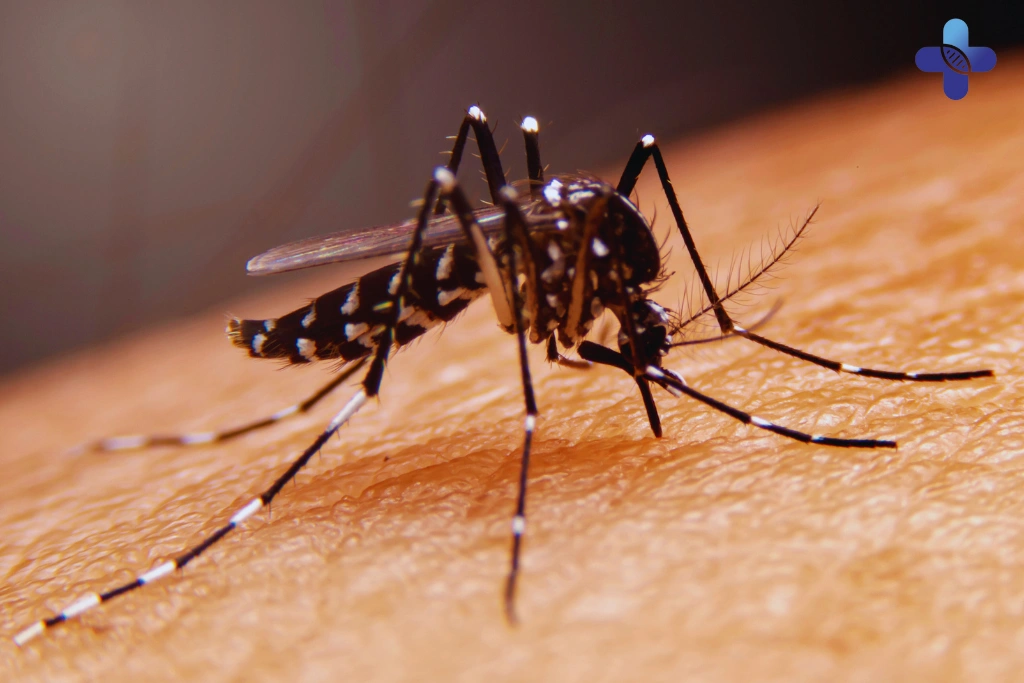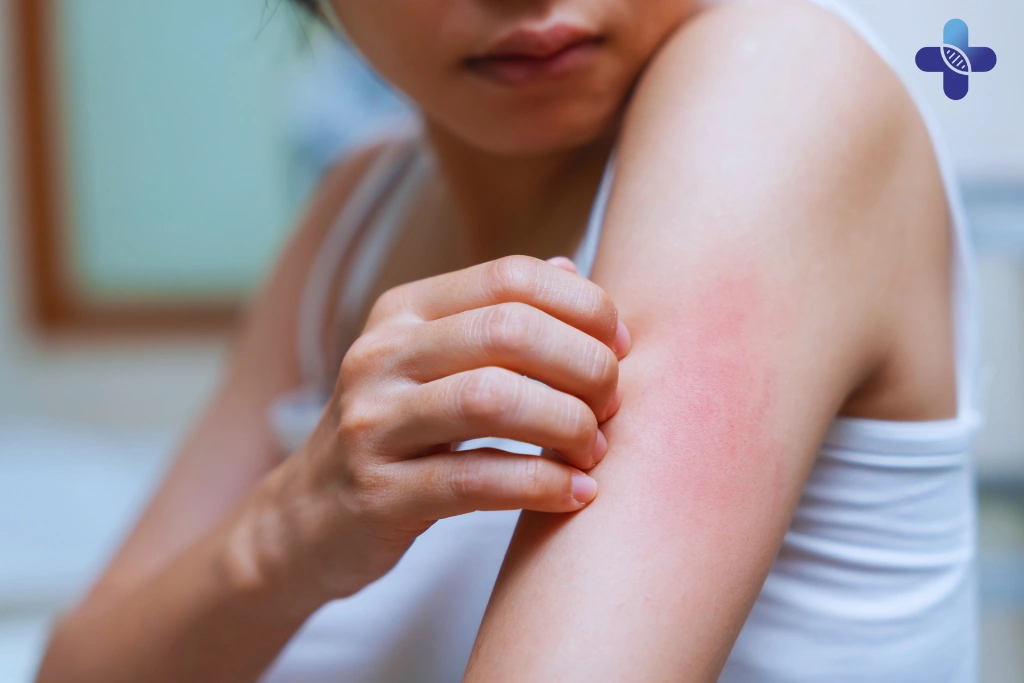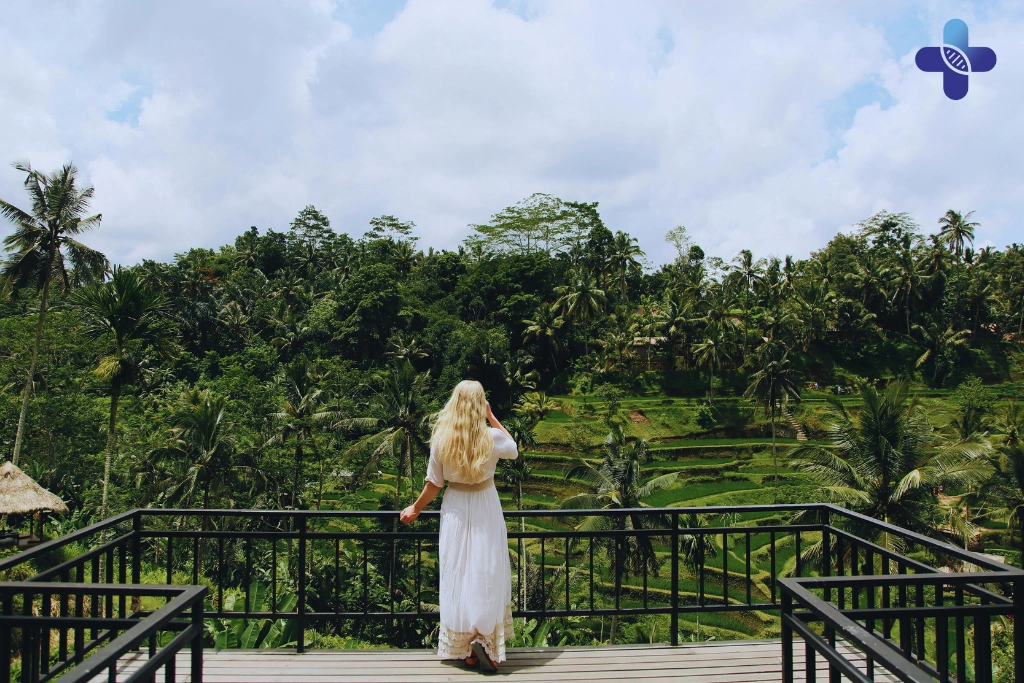Feeling extremely unwell in Bali with a sudden high fever and aching body? You’re not alone — many travelers worry about dengue fever while staying on the island. One of the diseases in Bali that commonly affects both adults and children, dengue fever can escalate quickly if not addressed properly. Recognizing the early dengue fever Bali symptoms is crucial to ensure timely care and avoid complications. In this article, Life Everyouth Bali, a trusted Medical Clinic in Bali, will guide you through the seven warning signs you should never ignore and explain why getting a proper diagnosis from a Bali Medical Clinic is the safest step forward.
Suspect You Have Dengue Fever in Bali? 7 Key Symptoms to Watch For

Feeling incredibly sick with a high fever in Bali? It’s wise to consider Dengue Fever — a mosquito-borne illness that’s common in tropical areas like Bali. If you’re experiencing body aches, fatigue, or intense headaches, it’s important not to ignore these early warning signs. Recognizing potential dengue fever Bali symptoms early is the first step toward safe and effective management. At Life Everyouth, a trusted Medical Clinic in Bali, we understand how concerning this situation can be, especially for travelers far from home.
In this article, Life Everyouth Bali will walk you through the 7 key symptoms of Dengue Fever to help you better understand what’s happening in your body. We’ll also explain why self-diagnosis can be dangerous — and why reaching out to a professional at a Bali Medical Clinic could make all the difference in your recovery. Let’s start by understanding what Dengue is and how it spreads.
What is Dengue Fever and How Do You Get It?
Dengue Fever is a viral infection spread by the bite of an infected Aedes aegypti mosquito. This mosquito is active during the day—especially in the early morning and late afternoon—and thrives in clean, stagnant water. Because of Bali’s tropical climate, even well-maintained resorts, villa gardens, or urban homes can become breeding grounds. You don’t need to be in remote nature to be at risk.
At Life Everyouth, a trusted Medical Clinic in Bali, we regularly treat tourists and residents with confirmed Dengue infections. The illness begins after an incubation period of 4–10 days following the bite. This explains why some visitors feel fine for several days after arrival, then suddenly develop symptoms like fever, headache, or fatigue. Recognizing these early dengue fever Bali symptoms is the key to avoiding complications.
If you’re currently in Bali and feel unsure whether your illness is just a tropical flu or something more serious like Dengue, don’t guess. Life Everyouth Bali offers fast consultations and testing to help you take action early. As a leading Bali Medical Clinic, our team can guide you through the safest next steps—before your condition worsens.
The 7 Telltale Symptoms of Dengue Fever

At Life Everyouth Bali, a trusted Medical Clinic in Bali, we see many cases of Dengue among travelers who initially mistook their symptoms for the flu. These are the 7 most common dengue fever Bali symptoms you shouldn’t ignore:
Sudden, High Fever
Dengue fever usually begins with a sudden high fever Bali, with body temperature rising up to 40°C (104°F) or more within just a few hours. Unlike other viral fevers, Dengue comes on quickly and doesn’t respond well to standard over-the-counter medications. This extreme fever often causes chills, sweating, and body discomfort that can feel overwhelming.
At Life Everyouth, a leading Bali Medical Clinic, we advise travelers to seek help immediately if a high fever appears suddenly, especially when it lasts more than 2 days. Early blood testing can confirm whether it’s Dengue or another tropical illness.
Severe Headache
Another hallmark symptom is a severe, persistent headache, often centered in the forehead or temples. Patients treated at Life Everyouth Bali often describe the pain as “pulsating” or “throbbing,” and it tends to worsen with movement or noise. This type of headache is more intense than a typical tension or dehydration headache.
If you’re in Bali and struggling with this kind of pain — especially in combination with a high fever — visit our Medical Clinic in Bali immediately for accurate evaluation and supportive care.
Pain Behind the Eyes
This distinct pain occurs deep within or behind the eyeballs, and is made worse by eye movement, reading, or bright light. While this may sound like a minor symptom, it’s actually a strong diagnostic clue for Dengue when paired with other signs.
At Life Everyouth, we see many patients who overlook this until it becomes unbearable. Our Bali Medical Clinic recommends not ignoring this symptom, especially if it accompanies headache or fever.
Severe Joint and Muscle Pain
Often referred to as “breakbone fever,” Dengue causes intense aching in muscles and joints, sometimes even making basic movement painful. Patients say it feels like their bones are breaking, hence the nickname. This pain usually involves the lower back, arms, and legs, and can last for several days.
If you’re experiencing this kind of debilitating pain while in Bali, consult Life Everyouth Bali, a reliable Medical Clinic in Bali, to confirm whether Dengue is the cause and begin supportive care to manage the symptoms.
Fatigue and Extreme Weakness
Dengue doesn’t just make you tired — it causes profound exhaustion that can make walking or standing feel impossible. Even after the fever subsides, patients often feel drained and weak for days or weeks. This kind of post-viral fatigue is common and requires rest, hydration, and medical monitoring.
At Life Everyouth, we help patients manage this phase safely. If you’re in Bali and experiencing persistent weakness, visit our Bali Medical Clinic for further assessment and guidance.
Nausea and Vomiting
Dengue often affects the digestive system, leading to nausea, vomiting, and loss of appetite. These symptoms can make it difficult to stay hydrated — which is especially dangerous in a hot, humid climate like Bali. Dehydration increases the risk of complications during a Dengue infection.
That’s why Life Everyouth Bali, as a leading Medical Clinic in Bali, often provides supportive IV fluids and monitoring to tourists and residents facing these symptoms.
Skin Rash
A classic Dengue skin rash usually appears 2–5 days after the fever starts. This skin rash may look like red patches or pinpoint dots, resembling measles or sunburn. Some patients develop a second skin rash as the fever begins to subside, which is a sign that the immune system is reacting to the virus.
If you notice a rash spreading across your chest, arms, or legs while feeling unwell, don’t ignore it. The team at Life Everyouth, your trusted Bali Medical Clinic, can help determine whether this is a typical viral reaction or a sign of more serious progression.
Worried you might have Dengue symptoms? Consult with Life Everyouth Bali, your trusted Medical Clinic in Bali, for fast, accurate testing and gentle care—right from your villa or hotel.
Don’t wait until it gets worse—our doctors are available 24/7 to help you feel safe, supported, and on the road to recovery.
CRITICAL – Warning Signs of Severe Dengue (DHF)
While most dengue fever Bali symptoms can be managed with rest and hydration, it’s important to understand that Dengue Hemorrhagic Fever (DHF) is a dangerous complication that can develop in some cases. At Life Everyouth Bali, a trusted Medical Clinic in Bali, we urge travelers to recognize these critical signs early to avoid life-threatening consequences.
If any of the following symptoms appear — especially after the fever begins to subside — go to the nearest hospital emergency room (UGD) immediately:
- Severe abdominal pain that doesn’t go away
- Persistent vomiting, especially if bile or blood is present
- Bleeding from the nose or gums, or unusual bruising
- Difficulty breathing or rapid, shallow breaths
These are not symptoms to monitor at home. At Life Everyouth, we often assist in stabilizing patients and arranging urgent hospital transfer when these signs appear. The drop in platelet count during DHF can lead to internal bleeding or shock if not treated quickly at a full-care facility beyond a general Bali Medical Clinic. One of the best ways to reduce your risk of these severe complications is by getting the dengue vaccine in Bali before exposure—especially if you’re staying long-term or during high-risk seasons.
Even if you’re unsure, don’t wait. A medical professional from Life Everyouth Bali can come to your location and assess whether you need hospital-level care. As a trusted Medical Clinic in Bali, we’re here to support you with both prevention and emergency response.
Conclusion Dengue Fever in Bali? 7 Symptoms to Watch For (2025 Guide)

Don’t panic — but don’t ignore it either. If you’re feeling unwell in Bali and notice several of the symptoms we’ve outlined, it’s essential to take them seriously. Dengue fever Bali symptoms can escalate quickly, and the safest way to protect your health is through early diagnosis and professional monitoring.
At Life Everyouth, we’ve helped hundreds of travelers identify and manage Dengue safely. As a leading Medical Clinic in Bali, we provide quick consultations, blood tests, and doctor-on-call services wherever you are on the island. Don’t let uncertainty delay action.
Call Life Everyouth Bali today or book a medical visit online. Whether you’re staying in a villa or hotel, our medical team can come to you — because your health can’t wait.
Frequently Asked Questions (FAQ) Dengue Fever in Bali? 7 Symptoms to Watch For (2025 Guide)
How is Dengue Fever officially diagnosed?
Dengue is diagnosed through a blood test, particularly the NS1 antigen test during early infection. Later stages require monitoring your platelet count and hematocrit to detect complications. At Life Everyouth Bali, our medical team can arrange these tests directly at your hotel or villa. As a trusted Medical Clinic in Bali, we make early diagnosis quick and stress-free.
Is there a specific medicine or cure for Dengue?
There is no direct antiviral cure for Dengue. Treatment is supportive, focusing on managing symptoms like high fever, pain, and dehydration. Life Everyouth provides safe care plans that include paracetamol, IV fluids, and close monitoring. If you suspect dengue fever Bali symptoms, our Medical Clinic in Bali can guide you safely through recovery.
Why is everyone so concerned about platelet count?
Dengue fever can cause thrombocytopenia, a rapid drop in platelets which help your blood clot. Low platelet levels increase the risk of internal bleeding and severe Dengue (DHF). Monitoring these levels regularly is critical to detect early warning signs. At Life Everyouth Bali, our medical team closely tracks this to keep you safe and informed.
Is it safe to take Ibuprofen or Aspirin if I think I have Dengue?
No — absolutely not. Ibuprofen and Aspirin can worsen bleeding by affecting platelet function. Only Paracetamol (Acetaminophen) is safe for managing fever and pain in Dengue. At Life Everyouth, a reliable Bali Medical Clinic, we’ll ensure you use the correct treatment for your condition.
How long does it take to recover from Dengue?
Most people recover from the fever phase of Dengue within 5–7 days. However, fatigue and weakness may continue for 2–3 weeks afterward. Recovery depends on hydration, rest, and ongoing monitoring. Life Everyouth Bali supports you from the first signs of dengue fever Bali symptoms until you feel like yourself again.
Can I get Dengue more than once?
Yes. There are four different strains of the Dengue virus, and infection with one doesn’t protect you from the others. A second infection may even carry a higher risk of complications. That’s why Life Everyouth, your trusted Medical Clinic in Bali, also offers Dengue vaccination as a preventative step.
Can I prevent my family/friends from getting Dengue from me?
Dengue is not contagious person-to-person. It spreads through the bite of an infected mosquito, not through physical contact or sharing food. Protecting others means preventing mosquito exposure around you. Life Everyouth Bali can also advise on mosquito control and prevention strategies at your accommodation.
What should I eat and drink if I have Dengue?
Hydration is key: drink water, coconut water, fresh juices, and oral rehydration solutions. Eat soft, easily digestible foods like soups, porridge, and fruits. Guava juice is especially popular for supporting platelets. Our doctors at Life Everyouth, a leading Medical Clinic in Bali, will tailor dietary advice to your needs.
Can I get vaccinated for Dengue in Bali to prevent this in the future?
Yes, the Qdenga vaccine is now available in select clinics, including Life Everyouth Bali. It helps protect against all four Dengue strains and is recommended especially if you travel frequently to tropical regions. Vaccination is a smart step after recovery or for future prevention. Ask our team at Life Everyouth, your trusted Bali Medical Clinic, about availability.
How can a doctor-on-call help with Dengue?
A doctor-on-call from Life Everyouth Bali can visit you wherever you are — hotel, villa, or residence — to provide fast assessment and support. We can arrange daily blood tests, monitor your platelet levels, and provide medication or fluid therapy. This service reduces hospital visits while ensuring close professional care. For anyone with dengue fever Bali symptoms, it’s the safest first step.
